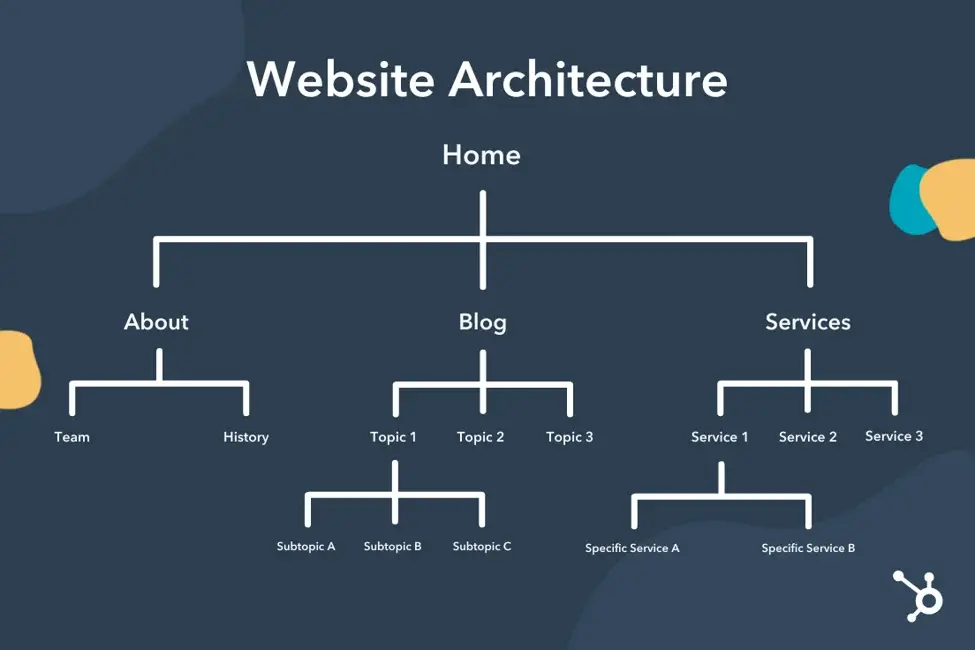Customers are no longer relying only on Google when choosing a field service provider. Increasingly, they are asking tools like ChatGPT, Google’s AI Overviews and Perplexity for recommendations. These AI platforms do not simply list nearby businesses. They filter, compare and evaluate businesses based on the signals they can verify online.
That means you can rank well on Google and still be invisible when a customer asks an AI tool for the best plumber, electrician or HVAC company in their area.
The good news is that AI visibility rewards clarity, consistency and credibility. These are strengths that small and medium field service businesses can achieve faster than larger competitors. You do not need technical expertise or a marketing team to benefit. You only need a few foundations in place.
This guide explains how AI search works, why it is becoming more influential, and what practical steps field service businesses can take now to protect their visibility in the years ahead.
Table of Contents:
- Why AI visibility matters for field service businesses
- How AI tools decide which local businesses to recommend
- Why small field service companies can outperform big brands in AI search
- The essential practical steps field service businesses should take now
- How to structure your website for AI visibility
- How to check your AI visibility in five minutes
- Why early action creates a long term advantage

1. Why AI visibility matters for field service businesses
AI search is still new, but consumer behaviour is already shifting. Neil Patel’s analysis highlights that only 27 percent of search behaviour happens on traditional Google search results, while the other 73 percent takes place across platforms like TikTok, Reddit, YouTube, Amazon and AI assistants .
This means customers may:
-
See a recommendation in ChatGPT.
-
Validate businesses by reading reviews on platforms like Trustpilot or Checkatrade.
-
Look at real experiences in Reddit threads.
-
Confirm pricing or service areas on a business website.
All of this can happen before they ever click a Google result.
AI recommendations already influence revenue
AI visibility is not a futuristic concern. It already directs buyers to real businesses. Industry experts have reported that some companies receive between eight and ten percent of signups from AI generated answers. These customers convert at a higher rate because they arrive convinced and ready to take action .
For local services, where customers often choose the first trustworthy option, this shift has even more impact.
Even strong SEO is no longer enough
Great Google rankings are still valuable, but they do not guarantee you will appear in AI answers. AI models pull information from a much broader range of sources and rely heavily on reputation signals, structured information and review consistency.
Some decisions in AI search happen when models compare information from as many as fifteen sources, including business directories, review sites, news articles and community pages. Visibility now depends on what the entire web says about your business, not just Google.

2. How AI tools decide which local businesses to recommend
AI search may feel unfamiliar, but the way these tools choose which businesses to surface is surprisingly logical.
AI tools follow a two stage decision process for local recommendations.
Stage 1: Discovery
“Are people talking about this business?”
Before an AI model can recommend a local business, it checks whether that business appears in the wider online environment. This discovery stage looks at signals that show real-world activity and public recognition.
AI tools scan for:
-
Google reviews
-
Facebook reviews
-
Checkatrade, Trustpilot, Yelp and industry directories
-
Local news mentions
-
Community websites and blogs
-
Social media discussion
-
Reddit threads
-
Business listings across the web
AI tools often check up to fifteen independent sources before deciding to recommend a business . This process helps tools avoid recommending companies with limited presence or unreliable information. For field service businesses, this is a major opportunity. Discovery signals are created by customers and communities, not by large marketing budgets.
Stage 2: Trust
“Can I verify accurate, consistent information about this business?”**
Once AI models discover your business, the next step is verification.
AI needs to confirm details such as:
-
Your business name
-
Address
-
Phone number
-
Service areas
-
Opening hours
-
Services offered
-
Pricing information
-
Credentials and qualifications
It cross-checks these details across multiple platforms to see whether the information is consistent. If the details do not match, the model is less likely to recommend you because it cannot be certain that you are the correct business.
This issue is highlighted in the transcripts. Models become confused when local businesses use several different phone numbers or operate multiple small websites with variation in their NAP details (name, address and phone) . Inconsistent information reduces trust signals.
Structured content helps LLMs verify information
AI models also look for content that is structured and easy to interpret. Research indicates that structured elements such as FAQs, tables and clear headings significantly increase the likelihood of being included in AI answers because they are easier for models to scan and cite automatically .
This is especially important for:
-
Service pages
-
Pricing explanations
-
Accreditation details
-
Common customer questions
-
Local service areas
When information is written in short, factual sections, it becomes far more accessible to AI models and reduces the risk of misinterpretation.
This talk by Lauren Ingram on The Marketing Meetup webinar gives a practical walkthrough of the core principles behind AI visibility and how to apply them.
3. Why small field service companies can outperform big brands in AI search
One of the most promising findings across the transcripts is that AI visibility does not favour the biggest businesses. In fact, small and medium field service companies can be mentioned more often because they typically have:
-
Recent and genuine customer reviews
-
Strong local reputation
-
Clear service areas
-
Consistent business information
-
A more human voice online
These factors are exactly what AI models value when forming recommendations.
AI tools prefer clarity over complexity
Large national brands often have multiple websites, varying contact information and broad service descriptions. This can make it harder for AI models to determine whether they serve a specific local area.
In contrast, small and medium field service companies typically have:
-
One main website
-
One phone number
-
One set of service areas
-
One set of qualifications
-
One local team
This creates a much cleaner and more reliable data footprint, making it easier for AI tools to recommend them with confidence.
Local reviews carry significant weight
AI models rely heavily on cross-platform reviews to determine reputation. ChatGPT looks for review consistency across platforms such as Google, Yelp and Facebook because multi-platform validation appears more credible than a single source of truth .
This is an area where local businesses often outperform large brands. Local companies typically generate far more detail and authenticity in their reviews, which gives them an advantage when models try to assess trustworthiness.
Fieldmotion Brochure
See how Fieldmotion helps field service teams manage jobs, schedule staff, create invoices, and communicate with customers — all from one easy-to-use system.
4. The essential practical steps field service businesses should take now
AI visibility may seem complex, but the foundations are simple and achievable for any field service company. These steps focus on clarity, credibility and consistency, which are the primary signals AI tools rely on.
The goal is not to overhaul your entire digital presence. The goal is to make it easy for AI models to understand who you are, where you operate and why customers trust you.
Step 1: Strengthen your Google Business Profile
A complete and accurate Google Business Profile (GBP) is one of the strongest signals in AI search. Even though AI platforms do not directly crawl Google Maps, they reference data sources that pull from your GBP. A profile that is incomplete suggests instability or limited credibility, which can be enough to exclude you from AI recommendations.
Ensure your profile includes:
-
Address and phone number
-
Full list of services
-
Service areas
-
Opening hours
-
Up to date photos
-
A concise business description
-
Monthly posts
Your GBP acts as a foundation. If the information here is clear and consistent, AI models can cross-reference it with confidence.
Step 2: Build review signals across multiple platforms
AI tools treat cross-platform reviews as a strong indicator of authenticity. Reviews only on Google are sometimes interpreted as less reliable. AI models are more confident when customers leave feedback across two or three recognised review sites. ChatGPT seeks review evidence across different platforms because this appears more genuine than reviews concentrated in a single location .
Choose two or three of the following:
-
Google
-
Facebook
-
Trustpilot
-
Checkatrade
-
Yelp
-
Which? Trusted Traders
Encourage customers to mention specific details of the job. These details help AI understand the type of work you complete and the locations you serve.
A steady stream of recent reviews supports both discovery and trust signals.
Step 3: Maintain consistent business information
Name, address and phone number, often known as NAP details, need to match everywhere online. Inconsistent details are one of the most common issues affecting AI visibility.
When businesses use several phone numbers or operate multiple microsites, AI systems become unsure whether the information belongs to one company or several. This uncertainty reduces the likelihood of being recommended. This is especially common in local trades where businesses once created many small websites for different towns, a strategy that no longer benefits either Google or AI systems .
Check the following locations for accuracy:
-
Your website
-
Google Business Profile
-
Social media pages
-
Online directories
-
Review platforms
Make any outdated listings consistent with your main business identity.
Step 4: Earn a small number of community mentions
Third party mentions are an influential AI signal. These may include:
-
Local news articles
-
Community blogs
-
Sponsorship write ups
-
Award nominations or shortlists
-
Partner business features
-
Charity involvement
Brand mentions such as these are like digital gold because they provide external, independent validation that AI systems value highly .
You do not need national coverage. A single article in a neighbourhood news site carries meaningful weight.
Step 5: Add basic structured data to your website
Structured data, also known as schema markup, helps AI models interpret your website more accurately. It labels information such as your business type, address, opening hours and service areas so that search engines and AI tools can identify these details reliably.
The importance of Local Business schema because it acts like a clear label that helps AI understand who you are and what you provide .
If you use WordPress, plugins like Yoast or Rank Math make this straightforward. Web developers can also add it manually in a few minutes.
Step 6: Publish proof that AI can cite
AI platforms rely heavily on factual, verifiable content. They prefer information that is structured, specific and free from exaggerated marketing language.
Evidence that AI can use includes:
-
Case studies
-
Photographs of completed work
-
Testimonials
-
Certification details
-
Safety documentation
-
Descriptions of common jobs
-
Short write ups of repairs or installations

5. How to structure your website for AI visibility
Your website remains central to how AI models understand your business. The goal is to make your content easy to scan, easy to understand and easy to verify.
AI tools behave more like readers than search algorithms. They look for clarity, structure and factual accuracy.
Use clear service pages
Each service should have its own page that explains:
-
What the service includes
-
Who it is designed for
-
Typical response times
-
Areas covered
-
Qualifications or certifications
-
Examples of completed work
Avoid generic descriptions. AI models prefer content that describes real tasks and outcomes.
Add a simple FAQ section
FAQs are one of the most effective ways to appear in AI search responses. Well structured FAQs increase inclusion in AI responses because they are easy to quote and understand.
Include questions such as:
-
Do you offer emergency call outs
-
Which areas do you cover
-
What equipment do you specialise in
-
Do you offer commercial maintenance contracts
-
Are your engineers certified
These are the same questions customers ask AI tools.
Include transparent pricing where possible
AI models value clarity and transparency. You do not need full price lists, but basic guidance helps both customers and models understand your services.
Examples:
-
Boiler servicing from £X
-
Call out fees from £Y
-
Commercial maintenance plans starting at £Z
Even broad ranges are more helpful than leaving the section blank.
Keep your content factual and updated
Large language models prefer factual, experience driven content. AI models rely on content that demonstrates expertise, shows evidence and uses clear language that reflects real world practice rather than generic advice .
Review your core pages every few months and update:
-
Service descriptions
-
Prices
-
Coverage areas
-
Qualifications
-
Insurance details
-
Case studies
This helps maintain accuracy and credibility.

6. How to check your AI visibility in five minutes
AI visibility does not require specialist software or detailed audits. A simple monthly routine can help you understand how AI tools currently view your business.
Set aside five minutes each month and try the following steps.
Step 1: Ask AI tools the questions your customers ask
Open ChatGPT, Google, or Perplexity and enter practical prompts such as:
-
Who are the best boiler service companies near me
-
Which electricians are recommended in my town
-
Which HVAC companies are trusted in my region
-
Who provides commercial maintenance services in my area
Check whether:
-
Your business is mentioned
-
Your business information is accurate
-
The description matches your services
-
Competitors appear more often
-
Competitors have clearer signals
People often arrive already knowledgeable because AI tools brief them before they make contact. This means accuracy matters more than ever. AI models can only repeat what they find online, so keeping your online signals correct prevents misinformation from spreading about your business .
Step 2: Look at which competitors are recommended
This provides insight into what signals they have that you may be missing. For example:
-
Do they have more recent reviews
-
Are their NAP details more consistent
-
Do they have clearer service pages
-
Have they appeared in local news
-
Do they have more complete directory listings
You can often identify quick wins simply by comparing the clarity of information.
Step 3: Correct any inaccurate details online
If AI tools list old phone numbers, outdated addresses or services you no longer provide, update the information at the source.
Inconsistent business details reduce trust. AI models prefer not to recommend a business when they cannot verify who it is or how to contact it .
Step 4: Track improvements over time
Even without specialised tools, you can observe:
-
When your business starts appearing more often
-
Whether recommendations become more detailed
-
Which pages AI tools seem to reference
-
How competitors shift up or down
These checks help ensure your information remains accurate as your business grows.

7. Why early action creates a long term advantage
AI driven recommendations are still new, but the patterns are becoming clear. Businesses that act early gain an advantage that compounds over time.
There are three reasons field service companies benefit from preparing now.
Reason 1: AI visibility is built on signals that take time to grow
Customer reviews, community mentions, citations and local reputation cannot be switched on overnight. These signals are built gradually, which means early movement results in stronger positioning when AI tools become more widely used.
A small business with consistent reviews and publicly available case studies can rapidly outperform larger companies when AI tools scan for trusted local providers. Some businesses have already seen new enquiries driven directly by AI visibility because they were quick to organise their online signals.
Reason 2: Local businesses already hold the information AI tools prefer
Smaller field service companies have:
-
Genuine customer reviews
-
Clear service areas
-
Simple contact information
-
Local experience
-
Consistent business identities
These characteristics allow AI models to verify details more reliably. Large national providers often have conflicting information across multiple websites and service areas, which reduces AI confidence.
Early action strengthens the advantage local businesses already hold.
Reason 3: AI search is expanding into everyday tools
AI tools are becoming accessible through:
-
Search engines
-
Smartphones
-
Messaging apps
-
Voice assistants
-
In car systems
-
Workplace tools
This expansion is widening the number of moments where customers might ask for recommendations. AI is not replacing Google but it is adding new channels in which customers validate and decide who to contact. These decision moments now happen across social platforms, review sites and AI assistants, often before a website is visited at all .
Businesses that appear consistently in these moments will gain more opportunities than those relying only on traditional SEO.
Fieldmotion Brochure
See how Fieldmotion helps field service teams manage jobs, schedule staff, create invoices, and communicate with customers — all from one easy-to-use system.
Closing: Preparing your field service business for the next wave of customer behaviour
AI visibility is not about becoming a technical expert or understanding complex algorithms. It is about presenting your business clearly and consistently so that AI tools can recommend you with confidence.
Field service owners are busy. You do not need to adopt a new marketing discipline. You only need to maintain a few essential practices.
Focus on:
-
A complete Google Business Profile
-
Reviews across two or three platforms
-
Consistent business details
-
Clear service pages and FAQs
-
Basic structured data
-
Local community mentions
-
Evidence and case studies that demonstrate expertise
These actions strengthen your reputation for customers and for AI tools. Most importantly, they future proof your business against changes that will soon affect how every customer chooses a service provider.
Field service companies that take these steps now will stand out from competitors when AI driven recommendations become standard. You will be recognised early, trusted sooner and contacted more often. If you would like help turning completed jobs into review requests, structured data, or case study content, Fieldmotion provides the operational backbone needed to support these visibility signals. A stronger digital footprint begins with accurate job data and organised customer information, both of which Fieldmotion makes simple and manageable.




